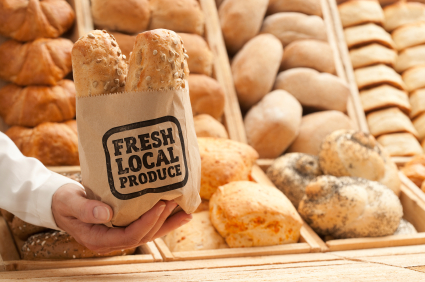This pandemic may not have offered a lot of bright spots but one highlight is how many people recognized the importance of shopping at local businesses. But, why shop local? When you spend your dollars in local stores, it connects and supports communities, as well as enhances wealth and employment by circulating dollars many times between businesses.
How Important is Small Business in British Columbia?
Small business is defined as a company with less than fifty employees. For 25 years, BC Statistics has prepared a Small Business Profile. An updated report was released last year (2021) with data for 2020. Here are some highlights:
- Small businesses account for 98 per cent of all businesses in British Columbia. With a population of 5.1 million people and 523,600 small businesses, roughly one-in-ten British Columbians are small business entrepreneurs.
- There were an estimated 1.1 million people or 43 per cent of all workers employed by small business in B.C.
- Our province’s small businesses accounted for 34 per cent of overall gross domestic product in 2020.
Make no mistake – small business is big business in British Columbia.
In BC, compared to other provinces, there are more small businesses per capita, they employ a larger share of the workforce, and self-employment is more common than in any other province.
Small Business Impact
The impact of small business is undeniable and stretches in to a community’s social fabric that contributes to our culture and authenticity. Small business owners are typically invested in the local community, with a genuine interest in enhancing the resident and visitor experience.
Obviously, that is all the more important in a place like Whistler that is committed to creating lasting memories for our guests. That authentic experience is meaningful as shown in a survey commissioned by the Canadian Federation of Independent Business, whereby 95 per cent of Canadians claim to value the products, services and personal attention that they get from a small business.
Whistler 2020’s Economic Strategy lists the following as a description of success: “locally owned and operated businesses thrive and are encouraged as an essential component of a healthy business mix.”
That success metric is why it’s imperative to encourage people to choose locally owned and operated businesses. By doing so, it shifts more spending to local businesses, increasing local business market share and consequently, boosting the local economy.
Give Me Specifics
According to LOCO, a non-profit business alliance dedicated to increasing overall market share for local business in this province, the consumer’s choice to shop at a local business means that for every $100 you spend, $63 is recirculated back into the BC economy versus $14 for multinational corporations.
Further, LOCO and Vancity teamed up to measure the impact of common purchases and discovered this breakdown: –
- Local retailers re-circulate 63% compared to 14% for chains
- Local restaurants re-circulate 68% compared to 30% for chains
- Local suppliers (e.g. office supplies) re-circulate 33% compared to 19% for chains
What About the Impact of the Pandemic?
Indeed, the Covid-19 pandemic made 2020 an out-of-the-ordinary year for small businesses. By May of 2020, about 10 per cent of businesses in BC had closed. Some of the worst-hit industries included those where small businesses were most prevalent, like food and beverage services, arts, entertainment recreation and other services.
Fortunately, many of those businesses reopened. In fact, Stats BC shows that as of April 2021, there were 2.2 per cent more active businesses in B.C. than there were in February 2020.
Having said that, the Covid-19 crisis has amplified the understanding of the key role that small and local businesses play in their communities and the B.C. economy. As the pandemic exposed the disparities in our economic system, it also highlighted the need for a “new normal”, an imperative to build back to a more just and equitable economy.
The simple choice to shop locally is even more important to increase local business resilience and foster a strong recovery for the sector. What hasn’t changed is that now, as before, shopping locally preserves the character of your community, puts money back into the tax base, creates jobs and helps the environment by reducing the toll of transportation. The old adage that ‘buying local is more costly’ doesn’t ring true when looking at the big picture.

